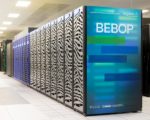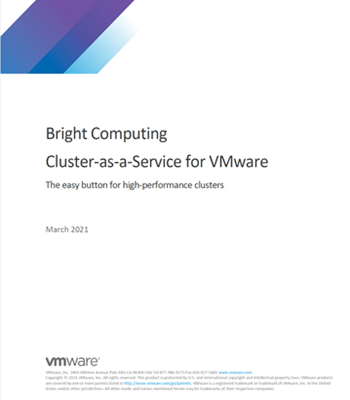In this sponsored post from our friends over at One Stop Systems, Product Marketing Manager, Braden Cooper discusses how the latest high-performance computing systems for AI applications generate more heat than ever before. Datacenters have begun adoption of immersion cooling solutions that immerse the temperature-sensitive electronics in a non-conductive fluid which efficiently dissipates the heat.
DOE Announces 18 Public-Private Partnership Awards to Advance Fusion Energy
July 6, 2022 — Today, the U.S. Department of Energy (DOE) announced awards for 18 projects with private industry to enhance collaboration with DOE national laboratories and U.S. universities to take on challenges in fusion energy development. The 18 selected projects include representation from 10 private companies. The full list of planned awards can be […]
HPC4EI to Release Spring Solicitation Funding Opportunity
April 12, 2022 — The U.S. Department of Energy’s High Performance Computing for Energy Innovation Initiative (HPC4EI) announced today it will issue a spring 2022 solicitation in May 2022. More information about this notice of intent are posted on SAM.gov. Selected projects will be awarded up to $300,000 to support computing cycles and work performed by DOE […]
HPC4EI: Applications Open for National Lab HPC to Improve Energy Efficiency
The US Department of Energy’s HPC4EI (High Performance Computing for Energy Innovation) program, designed for companies interested in helping the U.S. move toward an equitable clean energy future, is now accepting applications for materials or manufacturing projects. U.S. companies can apply for up to $300,000 to fund work with DOE national laboratory scientists and supercomputing […]
DOE: $50M for Fusion Energy Research Opportunities
The U.S. Department of Energy (DOE) announced a plan to provide up to $50 million to support U.S. scientists conducting experimental research in fusion energy science at tokamak and spherical tokamak facilities in the U.S. and around the globe. The DOE funding opportunities, “Collaborative Research on International and Domestic Spherical Tokamaks” and “Collaborative Research in Magnetic Fusion […]
Sandia Materials and Computer Scientists Help Create Alloys for Hydrogen Energy Storage, Transmission
LIVERMORE, Calif., Sept. 20, 2021 — A Sandia National Laboratories team of materials scientists and computer scientists, with some international collaborators, have spent more than a year creating 12 new alloys — and modeling hundreds more — that demonstrate how machine learning can help accelerate the future of hydrogen energy by making it easier to […]
High Performance Data Center Services Provider Verne Global Acquired by Digital 9 Infrastructure for £231M
Verne Global, the Iceland-based data center services provider utilizing that island country’s zero-carbon geothermal energy resources for high intensity computing, announced yesterday it has been acquired by UK-based Digital 9 Infrastructure plc (D9), a new investment trust investing in digital infrastructure assets, in a deal valued at approximately £231 million in cash. Verne Global’s 40 […]
Veteran Argonne System Helps Find Method to Convert CO2 into Ethanol
By supercomputing standards, Argonne National Lab’s Bebop (stood up in 2017, 1.75 teraflops, bumped off the Top500 list after the June 2019 ranking) seems something of a second-tier player. But veteran, formerly non-Top500 systems like Bebop can still take a star turn, as shown by the results of a research team from Northern Illinois University […]







